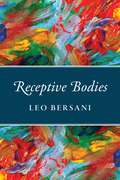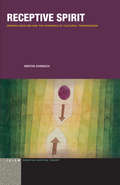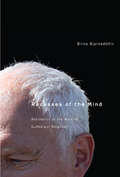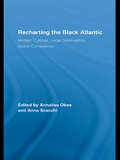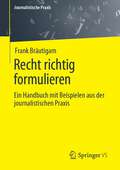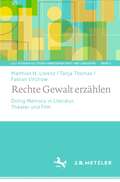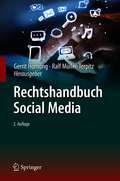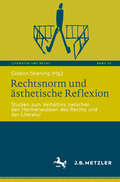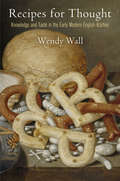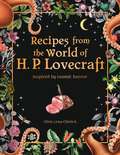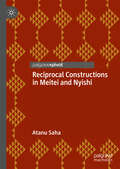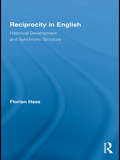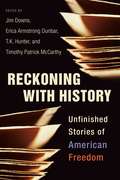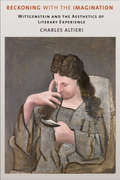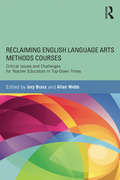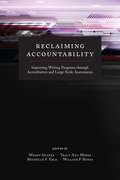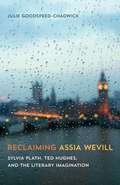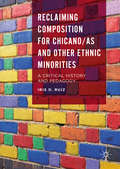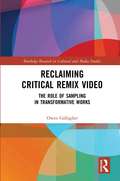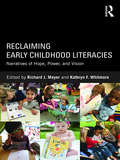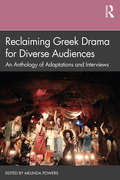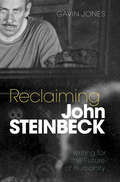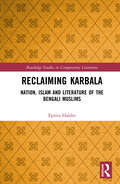- Table View
- List View
Receptive Bodies
by Leo BersaniLeo Bersani, known for his provocative interrogations of psychoanalysis, sexuality, and the human body, centers his latest book on a surprisingly simple image: a newborn baby simultaneously crying out and drawing its first breath. These twin ideas—absorption and expulsion, the intake of physical and emotional nourishment and the exhalation of breath—form the backbone of Receptive Bodies, a thoughtful new essay collection. These titular bodies range from fetuses in utero to fully eroticized adults, all the way to celestial giants floating in space. Bersani illustrates his exploration of the body’s capacities to receive and resist what is ostensibly alien using a typically eclectic set of sources, from literary icons like Marquis de Sade to cinematic provocateurs such as Bruno Dumont and Lars von Trier. This sharp and wide-ranging book will excite scholars of Freud, Foucault, and film studies, or anyone who has ever stopped to ponder the give and take of human corporeality.
Receptive Spirit: German Idealism and the Dynamics of Cultural Transmission (Idiom: Inventing Writing Theory)
by Márton DornbachPremised on the assumption that the mind is fundamentally active and self-determining, the German Idealist project gave rise to new ways of thinking about our dependence upon culturally transmitted models of thought, feeling, and creativity. Receptive Spirit elucidates the ways in which Kant, Fichte, Schlegel, and Hegel envisioned and enacted the conjunction of receptivity and spontaneous activity in the transmission of human-made models of mindedness. Their innovations have defined the very terms in which we think about the historical character of aesthetic experience, the development of philosophical thinking, the dynamics of textual communication, and the task of literary criticism.Combining a reconstructive approach to this key juncture of modern thought with close attention paid to subsequent developments, Marton Dornbach argues that we must continue to think within the framework established by the Idealists if we are to keep our bearings in the contemporary intellectual landscape.
Recesses of the Mind
by Birna BjarnadóttirRecesses of the Mind explores Guðbergur Bergsson's aesthetics of life and literature. Bergsson - like so many writers whose language is not widely spoken or read - is scarcely known outside his homeland, but the psychological depth of his vision reveals the minds of his characters in ways that are reminiscent of novelists such as Hamsun, Faulkner, and Garcia Márquez. Birna Bjarnadóttir constructs a deep and comprehensive argument for Bergsson's significance as a master of narrative. Crossing centuries, oceans, and continents, her contextualization of Bergsson's aesthetics stretches from his native land's literary tradition to the cultural domains of Europe and North and South America. Her investigation of his ideas on beauty, love, and belief, presented as a dialogue between Bergsson and numerous other writers and philosophers - Plotinus, Augustine, Nietzsche, Kierkegaard, Blanchot - is a striking reflection on some of the most important questions of modern times. Recesses of the Mind introduces a profound writer to the international stage. The book's exploration of the cultural periphery is equally significant, suggesting new interpretative strategies for considering cultural contributions from isolated places.
Recesses of the Mind: Aesthetics in the Work of Guðbergur Bergsson
by Birna BjarnadóttirBirna Bjarnadóttir constructs a deep and comprehensive argument for Bergsson's significance as a master of narrative. Crossing centuries, oceans, and continents, her contextualization of Bergsson's aesthetics stretches from his native land's literary tradition to the cultural domains of Europe and North and South America. Her investigation of his ideas on beauty, love, and belief, presented as a dialogue between Bergsson and numerous other writers and philosophers - Plotinus, Augustine, Nietzsche, Kierkegaard, Blanchot - is a striking reflection on some of the most important questions of modern times. Recesses of the Mind introduces a profound writer to the international stage. The book's exploration of the cultural periphery is equally significant, suggesting new interpretative strategies for considering cultural contributions from isolated places.
Recharting the Black Atlantic: Modern Cultures, Local Communities, Global Connections (Routledge Research in Atlantic Studies #1)
by Annalisa Oboe Anna ScacchiThis book focuses on the migrations and metamorphoses of black bodies, practices, and discourses around the Atlantic, particularly with regard to current issues such as questions of identity, political and human rights, cosmopolitics, and mnemo-history.
Recht richtig formulieren: Ein Handbuch mit Beispielen aus der journalistischen Praxis (Journalistische Praxis)
by Frank BräutigamJede Journalistin, jeder Journalist berichtet früher oder später über rechtliche Themen. Zum Beispiel über den Mordprozess am Landgericht vor Ort, das neuste Ermittlungsverfahren gegen einen Lokalpolitiker oder das umstrittene Verbot einer Demonstration. Dieses Buch beschreibt typische Situationen aus dem journalistischen Alltag. Es hilft dabei, Fehler und Ungenauigkeiten zu vermeiden. Geht der Angeklagte jetzt in "Berufung" oder "Revision"? Wurde der Verdächtige "festgenommen" oder "verhaftet"? Es benennt die typischen Fallstricke beim Thema "Recht", erklärt kurz die relevanten Begriffe und macht konkrete Vorschläge, wie man Recht richtig formuliert. Auch Autorinnen und Autoren von Krimi-Drehbüchern bekommen zahlreiche Hinweise, mit denen sie typische Fehler vermeiden können.
Rechte Gewalt erzählen: Doing Memory in Literatur, Theater und Film (LiLi: Studien zu Literaturwissenschaft und Linguistik #1)
by Matthias N. Lorenz Fabian Virchow Tanja ThomasRechte Gewalt, die in der Bundesrepublik Anfang der 1990er Jahre Konjunktur hatte und in den letzten Jahren abermals stark angestiegen ist, ist bis heute nur äußerst lückenhaft aufgearbeitet und wird künstlerisch kaum erinnert. Wenn überhaupt, herrschen Täterperspektiven im Rahmen eines rein ‚weißen‘ Erinnerungsrahmens vor, die Stimmen der Opfer bleiben ungehört. Ausgehend von der Beobachtung, dass mit der gesellschaftlichen Missachtung dieser Gewalt eine zweite Traumatisierung stattfindet, fragt der Band nach Formen, Leistungen und Defiziten der dokumentarischen wie fiktionalen Aufarbeitung rechter Gewalt in Literatur, Theater und Film. Die erzählenden Künste werden in den untersuchten Beispielen sowohl auf ihren Beitrag zu dem beobachteten Missstand als auch hinsichtlich ihres Potentials zu dessen Überwindung untersucht.Mit Beiträgen von Svea Bräunert, Anna Brod, Gabriele Fischer, Hans-Joachim Hahn, Matthias N. Lorenz, Jonas Meurer, Dan Thy Nguyen, Corinna Schlicht, Sebastian Schweer, Tanja Thomas, Fabian Virchow, Johanna Vollmeyer und Stefan Winterstein.
Rechtshandbuch Social Media
by Gerrit Hornung Ralf Müller-TerpitzSeit der Entwicklung des Internets zum Web 2.0 sind Social Media aus unserem privaten und beruflichen Alltag nicht mehr wegzudenken. Dienste wie Facebook, Instagram, YouTube, Twitter, WhatsApp, berufliche Netzwerke oder Plattformen für Bewertungen und Blogs haben erhebliche praktische Bedeutung erlangt und werfen zahlreiche, oft ungeklärte oder im Fluss befindliche Rechtsfragen auf. Seit dem Erscheinen der 1. Auflage dieses Handbuchs im Jahre 2015 hat sich zudem der Gesetzgeber dem Phänomen Social Media verstärkt angenommen. Die nunmehr aktualisierte und erweiterte 2. Auflage geht mit wissenschaftlichem Anspruch bei gleichzeitiger Praxisorientierung systematisch auf Rechtsfragen ein, die mit der Nutzung sozialer Netzwerke zusammenhängen. In Gestalt der klassischen Rechtsgebiete des Schuldrechts, Strafrechts, Arbeitsrechts und des Persönlichkeitsschutzes, der neueren Rechtsbereiche des Datenschutzes und E-Governments bis hin zum spezifischen Medien- und Internetrecht sowie unter Einschluss der Kommunikationswissenschaften wird das Phänomen Social Media ganzheitlich erfasst. Abgerundet werden diese Betrachtungen nunmehr durch Beiträge zu den ökonomischen Grundlagen sowie zum wettbewerbsrechtlichen Rahmen der sozialen Medien.
Rechtsnorm und ästhetische Reflexion: Studien zum Verhältnis zwischen den Hermeneutiken des Rechts und der Literatur (Literatur und Recht #13)
by Gideon StieningDer Band versammelt Studien zur juristischen und zur literarischen Hermeneutik sowie zu deren Verhältnis. Auf der Grundlage philosophischer und theologischer Konzepte zum Verstehen und zur Interpretation von Texten werden die Besonderheiten der Auslegung von Recht und Literatur erörtert. Die spezielle Herausforderung besteht in der Korrelation der spezifisch juristischen und spezifisch literarischen Kunst der Auslegung. Berücksichtigt werden zudem der historische Wandel dieser Bereichshermeneutiken und deren Verhältnis zueinander.
Recipes for Thought
by Wendy WallFor a significant part of the early modern period, England was the most active site of recipe publication in Europe and the only country in which recipes were explicitly addressed to housewives. Recipes for Thought analyzes, for the first time, the full range of English manuscript and printed recipe collections produced over the course of two centuries.Recipes reveal much more than the history of puddings and pies: they expose the unexpectedly therapeutic, literate, and experimental culture of the English kitchen. Wendy Wall explores ways that recipe writing--like poetry and artisanal culture--wrestled with the physical and metaphysical puzzles at the center of both traditional humanistic and emerging "scientific" cultures. Drawing on the works of Shakespeare, Spenser, Jonson, and others to interpret a reputedly "unlearned" form of literature, she demonstrates that people from across the social spectrum concocted poetic exercises of wit, experimented with unusual and sometimes edible forms of literacy, and tested theories of knowledge as they wrote about healing and baking. Recipe exchange, we discover, invited early modern housewives to contemplate the complex components of being a Renaissance "maker" and thus to reflect on lofty concepts such as figuration, natural philosophy, national identity, status, mortality, memory, epistemology, truth-telling, and matter itself. Kitchen work, recipes tell us, engaged vital creative and intellectual labors.
Recipes from the World of H.P Lovecraft: Recipes inspired by cosmic horror
by Olivia Luna EldritchImmerse yourself in the black seas of infinity that is Lovecraft's World like never before with these diverse cuisines inspired by its places, characters and a pantheon of alien deities.The H.P. Lovecraft Cookbook is bursting with photos of many of the recipes, along with extraordinary illustrations and extracts from the original tales. This book offers something for everyone: featuring easy to prepare vegan, vegetarian and seafood dishes, that are delicious enough to wake the tentacled Elder God Cthulhu from his slumber with ingredients readily found on our world.So go ahead, journey through Arkham all the way to R'lyeh while you prepare a banquet fit for the Ancient Ones with recipes that capture the piquancy of Lovecraft's most vivid tales.
Recipes from the World of H.P Lovecraft: Recipes inspired by cosmic horror
by Olivia Luna EldritchImmerse yourself in the black seas of infinity that is Lovecraft's World like never before with these diverse cuisines inspired by its places, characters and a pantheon of alien deities.The H.P. Lovecraft Cookbook is bursting with photos of many of the recipes, along with extraordinary illustrations and extracts from the original tales. This book offers something for everyone: featuring easy to prepare vegan, vegetarian and seafood dishes, that are delicious enough to wake the tentacled Elder God Cthulhu from his slumber with ingredients readily found on our world.So go ahead, journey through Arkham all the way to R'lyeh while you prepare a banquet fit for the Ancient Ones with recipes that capture the piquancy of Lovecraft's most vivid tales.
Reciprocal Constructions in Meitei and Nyishi
by Atanu SahaThis book investigates three interesting questions arising from the intriguing cross-linguistic perspective of Meiteilon and Nyishi, two Tibeto-Burman languages respectively spoken in the states of Manipur and Arunachal Pradesh in India. The first question relates to developing a model for the syntax and semantics of these verbal reciprocal languages. Secondly, the book attempts to provide an account of the surface variations between the languages using this model. The book also tries to build an account for the co-occurrences of the nominal and verbal reciprocals in languages like Meiteilon and Nyishi. Both languages use a verbal strategy for default reciprocalization and both the languages show discontinuous reciprocity. The author argues that if the reciprocal marker consists of one suffix (as in the case of Meiteilon), it may express several other functions, but if the reciprocal marker composes of more than one suffix (as in Nyishi), it does not show polysemy. Both languages can reciprocalize unaccusative and unergative verbs, and in both the languages, overt distributive nominal reciprocal markers show strong reciprocity. This book will be of interest to syntacticians and typologists working in the domain of universal grammar, as well as computational linguists seeking empirical data on endangered and underrepresented languages.
Reciprocity in English: Historical Development and Synchronic Structure (Routledge Studies In Germanic Linguistics #15)
by Florian HaasAlthough the grammatical expression of reciprocal (or ‘mutual’) situations in the languages of the world has received a surprising amount of attention in recent years, so far no comprehensive study specifically dealing with the historical development and synchronic structure of English reciprocal constructions has been published. This book takes into consideration insights from the three major research projects on reciprocity in the languages of the world as well as the rich literature on more specific aspects of reciprocity. Assuming a usage-based model of grammar, the development of the reciprocal strategies used in present-day English is described, with special attention paid to the periods following Middle English, where today’s system began to take shape. The means of expressing reciprocity in today’s English (e.g. the expressions each other and one another) are then analyzed as a system of competing constructions, the make-up and distribution of which can be related both to their history and subtle distinctions in meaning and use associated with the different constructions. Quantitative data from corpora of natural language provides evidence for the analyses put forward. Wherever possible, claims on the expression of reciprocity in present-day English are checked against what is known about the grammar of reciprocity in other languages.
Reckoning with History: Unfinished Stories of American Freedom
by Downs, Jim; Dunbar, Erica Armstrong; Hunter, T. K.; McCarthy, Timothy PatrickReckoning with History brings together original essays from a diverse group of historians who consider how writing about the past can engage with the urgent issues of the present. The contributors—all former students of the distinguished Columbia University historian Eric Foner—explore the uses and politics of history through key episodes across a wide range of struggles for freedom. They shed new light on how different groups have defined and fought for freedom throughout American history, as well as the ways in which the ideal of freedom remains unrealized today. Covering a broad range of topics, these essays offer insight into how historians practice their craft in different ways and illuminate what it means to be a socially and politically engaged historian.
Reckoning with the Imagination: Wittgenstein and the Aesthetics of Literary Experience
by Charles AltieriMuch current theorizing about literature involves efforts to renew our sense of aesthetic values in reading. Such is the case with new formalism as well as recent appeals to the notion of "surface reading." While sympathetic to these efforts, Charles Altieri believes they ultimately fall short because too often they fail to account for the values that engage literary texts in the social world. In Reckoning with the Imagination, Altieri argues for a reconsideration of the Kantian tradition of Idealist ethics, which he believes can restore much of the power of the arguments for the role of aesthetics in art. Altieri finds a perspective for that restoration in a reading of Wittgenstein's later work that stresses Wittgenstein's parallel criticisms of the spirit of empiricism. Altieri begins by offering a phenomenology of imagination, because we cannot fully honor art if we do not link it to a distinctive, socially productive force. That force emerges in two quite different but equally powerful realizations in his reading of John Ashbery's "Instruction Manual," which explicitly establishes a model for a postromantic view of imagination, and William Butler Yeats's "Leda and the Swan." He then turns to Wittgenstein with chapters on the role of display as critique of Enlightenment thinking, the honoring of qualities like sensitivity and the ability to attune to the actions of others, the role of expression in the building of models, and the contrast between ethical and confessional modes of judgment. Finally, Altieri produces his own model of aesthetic experience as participatory valuation and makes an extended argument for the social significance of appreciation as a way to escape the patterns of resentment fundamental to our current mode of politics. A masterful work by one of our foremost literary and philosophical theorists, Reckoning with the Imagination will breathe new life into ongoing debates over the value of aesthetic experience.
Reclaiming English Language Arts Methods Courses: Critical Issues and Challenges for Teacher Educators in Top-Down Times
by Allen Webb Jory BrassReclaiming English Language Arts Methods Courses showcases innovative work in teacher education that fosters teachers’ capacities as reflective practitioners and public intellectuals; extends traditional boundaries of methods courses on teaching the English language arts, literacy, children’s and young adult literature; and embodies democratic and critical politics that go beyond the reductive economic aims and traditional classroom practices sanctioned by educational policies and corporate educational reforms. Featuring leading and emerging scholars in English language arts teacher education, each chapter provides rich and concrete examples of elementary and secondary methods courses rooted in contemporary research and theory, on-line resources, and honest appraisals of the possibilities, tensions, and limits of doing teacher education differently in a top-down time of standards-based education, high-stakes testing, teacher assessment, and neoliberal education reforms. This book offers important resources and support for teacher educators and graduate students to explore alternative visions for aligning university methods courses with current trends in English and cultural studies, critical sociocultural literacy, new literacies and web 2.0 tools, and teaching the English language arts in multiethnic, multilingual, and underserved urban communities.
Reclaiming Accountability: Improving Writing Programs through Accreditation and Large-Scale Assessments
by Wendy Sharer, Tracy Ann Morse, Michelle F. Eble and William P. BanksReclaiming Accountability brings together a series of critical case studies of writing programs that have planned, implemented, and/or assessed the impact of large-scale accreditation-supported initiatives. The book reimagines accreditation as a way to leverage institutional or programmatic change. Contributions to the volume are divided into three parts. Part 1 considers how specialists in composition and rhetoric can work most productively with accrediting bodies to design assessments and initiatives that meet requirements while also helping those agencies to better understand how writing develops and how it can most effectively be assessed. Parts 2 and 3 present case studies of how institutions have used ongoing accreditation and assessment imperatives to meet student learning needs through programmatic changes and faculty development. They provide concrete examples of productive curricular (part 2) and instructional (part 3) changes that can follow from accreditation mandates while providing guidance for navigating challenges and pitfalls that WPAs may encounter within shifting and often volatile local, regional, and national contexts. In addition to providing examples of how others in the profession might approach such work, Reclaiming Accountability addresses assessment requirements beyond those in the writing program itself. It will be of interest to department heads, administrators, writing program directors, and those involved with writing teacher education, among others. Contributors: Linda Adler-Kassner, William P. Banks, Remica Bingham-Risher, Melanie Burdick, Polina Chemishanova, Malkiel Choseed, Kyle Christiansen, Angela Crow, Maggie Debelius, Michelle F. Eble, Jonathan Elmore, Lorna Gonzalez, Angela Green, Jim Henry, Ryan Hoover, Rebecca Ingalls, Cynthia Miecznikowski, Susan Miller-Cochran, Cindy Moore, Tracy Ann Morse, Joyce Magnotto Neff, Karen Nulton, Peggy O’Neill, Jessica Parker, Mary Rist, Rochelle Rodrigo, Tulora Roeckers, Shirley K. Rose, Iris M. Saltiel, Wendy Sharer, Terri Van Sickle, Jane Chapman Vigil, David M. Weed
Reclaiming Assia Wevill: Sylvia Plath, Ted Hughes, and the Literary Imagination
by Julie Goodspeed-ChadwickReclaiming Assia Wevill: Sylvia Plath, Ted Hughes, and the Literary Imagination reconsiders cultural representations of Assia Wevill (1927–1969), according her a more significant position than a femme fatale or scapegoat for marital discord and suicide in the lives and works of two major twentieth-century poets. Julie Goodspeed-Chadwick’s innovative study combines feminist recovery work with discussions of the power and gendered dynamics that shape literary history. She focuses on how Wevill figures into poems by Sylvia Plath and Ted Hughes, showing that they often portrayed her in harsh, conflicted, even demeaning terms. Their representations of Wevill established condemnatory narratives that were perpetuated by subsequent critics and biographers and in works of popular culture. In Plath’s literary treatments, Goodspeed-Chadwick locates depictions of both desirable and undesirable femininity, conveyed in images of female bodies as beautiful but barren or as vehicles for dangerous, destructive acts. By contrast, Hughes’s portrayals illustrate the role Wevill occupied in his life as muse and abject object. His late work Capriccio constitutes a sustained meditation on trauma, in which Hughes confronts Wevill’s suicide and her killing of their daughter, Shura. Goodspeed-Chadwick also analyzes Wevill’s self-representations by examining artifacts that she authored or on which she collaborated. Finally, she discusses portrayals of Wevill in recent works of literature, film, and television. In the end, Goodspeed-Chadwick shows that Wevill remains an object of both fascination and anger, as she was for Plath, and a figure of attraction and repulsion, as she was for Hughes. Reclaiming Assia Wevill reconsiders its subject’s tragic life and lasting impact in regard to perceived gender roles and notions of femininity, power dynamics in heterosexual relationships, and the ways in which psychological traumas impact life, art, and literary imagination.
Reclaiming Composition for Chicano/as and Other Ethnic Minorities
by Iris D. RuizThis book examines the history of ethnic minorities--particularly Chicano/as and Latino/as--in the field of composition and rhetoric; the connections between composition and major US historical movements toward inclusiveness in education; the ways our histories of that inclusiveness have overlooked Chicano/as; and how this history can inform the teaching of composition and writing to Chicano/a and Latino/a students in the present day. Bridging the gap between Ethnic Studies, Critical History, and Composition Studies, Ruiz creates a new model of the practice of critical historiography and shows how that can be developed into a critical writing pedagogy for students who live in an increasingly multicultural, multilingual society.
Reclaiming Critical Remix Video: The Role of Sampling in Transformative Works (Routledge Research in Cultural and Media Studies)
by Owen GallagherRemix is now considered by many to be a form of derivative work, but such generalizations have resulted in numerous non-commercial remixes being wrongfully accused of copyright infringement. Gallagher argues, however, that remix is a fundamentally transformative practice. The assumption that cultural works should be considered a form of private property is called into question in the digital age; thus, he proposes an alternative system to balance the economic interests of cultural producers with the ability of the public to engage with a growing intellectual commons of cultural works. Multimodal analyses of both remixed and non-remixed intertextual work, with a particular focus on examples of critical remix video, fuel the discussion, synthesizing a number of investigative methods including semiotic, rhetorical and ideological analysis.
Reclaiming Early Childhood Literacies: Narratives of Hope, Power, and Vision
by Kathryn F. Whitmore Richard J. MeyerAt a time when literacy has become more of a political issue than a research or pedagogical one, this volume refocuses attention on work with young children that places them at the center of their literacy worlds. Drawing on robust and growing knowledge which is often marginalized because of political and legislative forces, it explores young children’s literacies as inclusive, redefined, and broadened—encompassing technologies, the arts, multiple modalities, and teaching and learning for democracy, cultural sustainability and social justice. Highlighted themes include children’s rights to grow through playful engagements with multiple literacies to interrogate their worlds; adults who expand and inspire children’s consciousness and awareness of others and the world around them; the centrality of meaning making in all aspects of language and literacy development; a deep respect for diversities, including languages, cultures, sexual orientation, socioeconomic status and more; and an expansive understanding of the nature of texts.
Reclaiming Greek Drama for Diverse Audiences: An Anthology of Adaptations and Interviews
by Melinda PowersReclaiming Greek Drama for Diverse Audiences features the work of Native-American, African-American, Asian-American, Latinx, and LGBTQ theatre artists who engage with social justice issues in seven adaptations of Sophocles’ Antigone, Euripides’ Trojan Women, Hippolytus, Bacchae, Alcestis, and Aristophanes’ Frogs, as well as a work inspired by the myth of the Fates. Performed between 1989 and 2017 in small theatres across the US, these contemporary works raise awareness about the trafficking of Native-American women, marriage equality, gender justice, women’s empowerment, the social stigma surrounding HIV, immigration policy, and the plight of undocumented workers. The accompanying interviews provide a fascinating insight into the plays, the artists’ inspiration for them, and the importance of studying classics in the college classroom. Readers will benefit from an introduction that discusses practical ways to teach the adaptations, ideas for assignments, and the contextualization of the works within the history of classical reception. Serving as a key resource on incorporating diversity into the teaching of canonical texts for Classics, English, Drama and Theatre Studies students, this anthology is the first to present the work of a range of contemporary theatre artists who utilize ancient Greek source material to explore social, political, and economic issues affecting a variety of underrepresented communities in the US.
Reclaiming John Steinbeck: Writing for the Future of Humanity
by Gavin JonesJohn Steinbeck is a towering figure in twentieth-century American literature; yet he remains one of our least understood writers. This major reevaluation of Steinbeck by Gavin Jones uncovers a timely thinker who confronted the fate of humanity as a species facing climate change, environmental crisis, and a growing divide between the powerful and the marginalized. Driven by insatiable curiosity, Steinbeck's work crossed a variety of borders – between the United States and the Global South, between human and nonhuman lifeforms, between science and the arts, and between literature and film – to explore the transformations in consciousness necessary for our survival on a precarious planet. Always seeking new forms to express his ecological and social vision of human interconnectedness and vulnerability, Steinbeck is a writer of urgent concern for the twenty-first century, even as he was haunted by the legacies of racism and injustice in the American West.
Reclaiming Karbala: Nation, Islam and Literature of the Bengali Muslims (Routledge Studies in Comparative Literature)
by Epsita HalderAnalysing an extensive range of texts and publications across multiple genres, formats and literary lineages, Reclaiming Karbala studies the emergence and formation of a viable Muslim identity in Bengal over the late-19th century through the 1940s. Beginning with an explanation of the tenets of the battle of Karbala, this multi-layered study explores what it means to be Muslim, as well as the nuanced relationship between religion, linguistic identity and literary modernity that marks both Bengaliness and Muslimness in the region.This book is an intervention into the literature on regional Islam in Bengal, offering a complex perspective on the polemic on religion and language in the formation of a jatiya Bengali Muslim identity in a multilingual context. This book, by placing this polemic in the context of intra-Islamic reformist conflict, shows how all these rival reformist groups unanimously negated the Karbala-centric commemorative ritual of Muharram and Shī‘ī intercessory piety to secure a pro-Caliphate sensibility as the core value of the Bengali Muslim public sphere.
